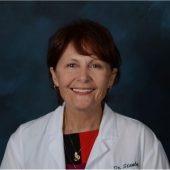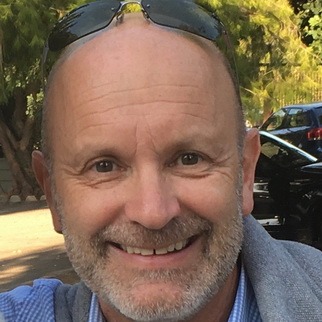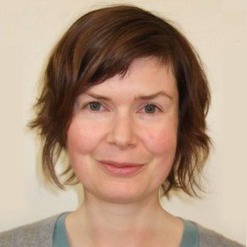Brachycephalic Airway Syndrome - A Diagnostic & Therapeutic Conundrum
Species
Small Animal
Contact Hours
3 Hours
Early Booking Deadline
Thu, 01 January, 1970
Registration Deadline
Thu, 01 January, 1970
Language
English
Discipline
Diagnostic Imaging
Emergency & Critical Care
Internal Medicine – Endocrinology, Haematology, Infectious Diseases, Parasitology & Oncology
Surgery
Industry Partners
Global

Veterinary Partners
Global


Recorded on: 25th February 2021
Panelists:
Gilles Dupré DVM, Dr.Med.Vet., DECVS – University of Vienna, Austria
Sheilah Robertson BVMS (Hons), PhD, DACVAA, DECVAA, DACAW, DECAWBM (WSEL), MRCVS - Lap of Love Veterinary Hospice, USA
Jane Ladlow MA, VetMB, Cert SAS, Cert VR, DECVS, MRCVS – Hamilton Specialist Referrals, UK
Moderator:
Bryden Stanley BVMS, MVETSC, MACVSC, DACVS – Michigan State University, USA
CONTENT DESCRIPTION
For decades Brachycephalic breeds have been selectively bred for their wide, foreshortened skull and muzzle. This has led to a number of primary anatomic and functional issues that compromise their ability to breathe, with secondary upper airway collapse compounding their respiratory distress. With their ever-increasing popularity and a lack of regulated breeding, veterinarians are continually challenged with trying to ameliorate the quality of life of affected dogs.
This panel discussion brings together globally recognized clinical experts that frequently deal with the condition, known as brachycephalic obstructive airway syndrome (BOAS). They will discuss a number of issues including how to best evaluate dogs’ ability to breathe, how to examine the upper airway properly, what additional diagnostics are valuable and when they are indicated, guidelines and recommendations for anesthesia, what surgical interventions can be performed, when they should be performed, complications of surgery, post-operative management (both in hospital and post-discharge) and, importantly, what role can we as a profession play to improve the airway anatomy of these breeds and lessen the need for intervention.
Originally a graduate of Murdoch University, Australia, Dr. Bryden J. Stanley did her surgery residency and Master’s degree at the University of Saskatchewan, Canada. Dr. Stanley’s first faculty appointment was at the University of Edinburgh, but she has been at Michigan State University since 1999. Bryden’s clinical interests are all aspects of soft tissue surgery; her research interests are upper respiratory conditions and wound healing. Current studies include: laryngeal paralysis, the Norwich terrier and brachycephalic upper airway, NPWT, amnion and honey-based products. She publishes frequently, has received many teaching awards and lectures widely at a national and international level.
Gilles Dupré graduated in 1980 in France. His surgical training happened in France and in the USA where he was resident in small animal surgery.
After being co-head of surgery in a referral practice in Paris for 17 years, he was appointed by the veterinary medicine University of Vienna as Professor for small animal surgery and Head of the clinic for small animal surgery, ophthalmology, dentistry, physical therapy and rehabilitation. With this, he is currently leading a team of more than 50 people that became over time a state of the art and internationally recognized small animal surgery clinic.
University Professor, doctor Med. Vet. Gilles Dupré is Diplomate of the European college of Veterinary Surgeons and Diplomate of human interventionnal pneumology and thoracoscopic surgery. He is currently appointed by many universities throughout Europe and further to provide support to the establishment and development of surgical training programs. Besides his ESAVS responsibilities, he is also board-member and regent of the European College of Veterinary Surgeons (ECVS). His activities as lecturer, speaker or teacher make him travel all over the world holding conferences about his main topics of interests: Mini-invasive surgery, oncologic surgery, upper airways and soft tissue surgery in general.
Professor Dupré has published more than 120 articles in peer-reviewed journals, supervised many thesis and dissertations and written many surgery book chapters.
Jane obtained her ECVS Diploma in Small Animal Surgery in 2002 after completing a Surgical Residency at the Royal Veterinary College and has concentrated on Soft Tissue Surgery ever since. Jane moved to Cambridge from the Animal Health Trust in 2006 and is currently a Lecturer in Small Animal Surgery and part of the Soft Tissue Team. Jane is interested in all aspect of soft tissue surgery, particularly oncological surgery and respiratory cases. Her clinical research interests are brachycephalic obstructive airway syndrome and non-invasive methods of evaluating respiratory function.
Dr. Robertson grew up in Scotland and graduated from Glasgow University. Her career in veterinary medicine spans more than three decades and encompasses numerous roles including a general practitioner, surgery intern, anesthesia trainee, PhD student, clinician and teacher in university veterinary schools in the United Kingdom, Canada and the United States. Dr. Robertson has experience with high volume, high quality spay and neuter clinics and with community cat management. In 1999, she started a program to train first responders and K9 handlers to provide emergency care to working dogs. Nearly 20 years later, she is still active in this area.
Dr. Robertson has held many prestigious positions. She served as a staff member of the animal welfare division at the AVMA. She was part of the AAFP and International Society of Feline Medicine Feline Friendly Nursing Guidelines committee. She has been a two-time member of the American Animal Hospital Association and American Association of Feline Practitioners (AAFP) Pain Management Taskforce. Dr. Robertson also has served as the president of the American College of Veterinary Anesthesia and Analgesia. Dr. Robertson has published numerous peer reviewed papers related to anesthesia and analgesia in dogs, cats, horses and even iguanas. Additionally, she has edited two books on anesthesia and analgesia and written numerous book chapters. She has a special interest in sedation, anesthesia and analgesia of older pets and in helping them enjoy life to the fullest.
Dr. Robertson joined Lap of Love Veterinary Hospice as the Senior Medical Director in 2017. In this role, she supports over 100 veterinarians by providing the latest information on pain management, geriatric and end of life care and presenting continuing education at national conferences and local veterinary medical association meetings.
Veterinary Student
Online Panel Discussion
USD 40.00
Qualified Vet
Online Panel Discussion
USD 95.00
Intern/Resident (Requires proof of status)
Online Panel Discussion
USD 75.00
Vet Nurse/Vet Tech (Requires proof of status)
Online Panel Discussion
USD 75.00
If the options you are looking for are unavailable, please contact us.
No tax will be added unless you are a UK taxpayer
Choose currency at checkout


















